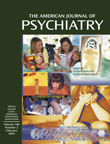The Declaration of Helsinki and Clinical Trials: A Focus on Placebo-Controlled Trials in Schizophrenia
Abstract
OBJECTIVE: The authors’ goal was to consider ethical approaches to placebo-controlled clinical trials in the light of the evolving Declaration of Helsinki, with special attention to applications to research on schizophrenia. METHOD: They review the Helsinki position on placebos, including the 2002 Clarification, exploring the potential negative effects of banning placebos in studies involving conditions for which at least partially effective treatments exist. The Clarification is examined as an approach to this issue that, in contrast to earlier formulations, better acknowledges the complexity of clinical research and the need for protocol-specific determinations. Placebo controls in schizophrenia studies are used to illustrate issues relevant to all clinical research on therapeutic interventions. RESULTS: The Helsinki Clarification provides a basis for operationalizing criteria for review of placebo use in clinical trials. Six criteria are proposed for judging the ethical acceptability of placebo controls, including the likelihood that the intervention being tested will have clinically significant advantages over existing treatments, the presence of compelling reasons for placebo use, subject selection that minimizes the possibility of serious adverse consequences, and a risk-versus-benefit analysis that favors the advantages from placebo use over the risks to subjects. CONCLUSIONS: The Helsinki Clarification constitutes an important advance in international approaches to placebo use, requiring protocol-by-protocol judgments on complex issues of clinical research ethics. When operationalized, it provides review boards with a useful methodology for reaching determinations on the appropriateness of placebo controls in particular studies.



